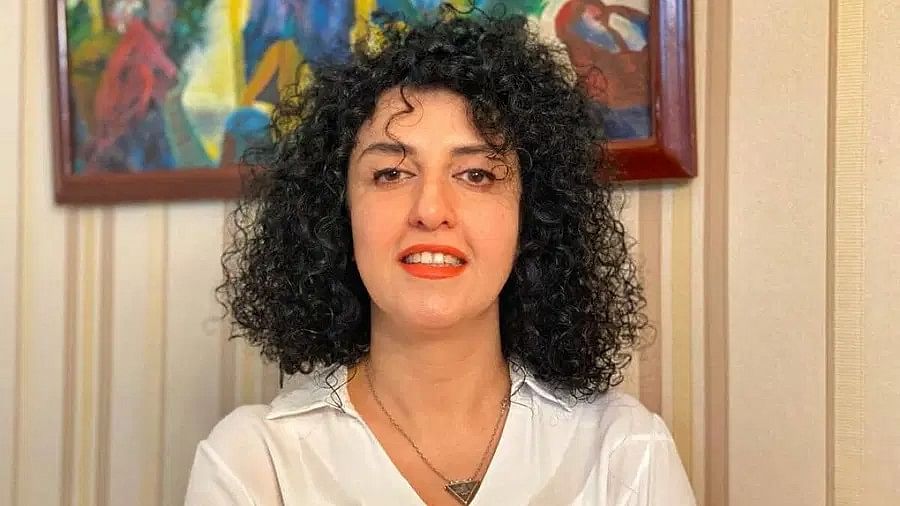
Iranian women’s rights activist Narges Mohammadi.
Credit: Reuters Photo
Iranian women’s rights activist Narges Mohammadi well deserves her Nobel Peace Prize for what the Norwegian Nobel Committee called “her fight against the oppression of women in Iran and her fight to promote human rights and freedom for all.”
Mohammadi represents a stunning mass movement by Iranian women that for months has sustained nationwide protests in the face of imprisonment and death largely against the way women’s rights are curtailed — from what they can wear to what jobs and schooling they can get to their rights within the family.
But in Saudi Arabia and other Gulf states, brave women have also fought against gender oppression and been imprisoned, restrained and silenced. Despite a handful of recent reforms in the region, women still face legal, social and political restrictions and oppression.
Political calculations can explain why Western nations stay quiet about this gender repression. Their dependence on Saudi Arabia and other Gulf countries for oil, investments and, arguably, security fuels this hypocrisy.
Since the Nobel committee is supposed to rise above all that and stand on principle, it’s time for it to recognise the freedom fighters in these influential nations, along with a hero like Mohammadi (there can be more than one winner).
Loujain al-Hathloul of Saudi Arabia, who says she was tortured and imprisoned after being effectively kidnapped from the United Arab Emirates in 2018, was then placed under a travel ban and heavy restrictions, with the threat of more jail and torture hanging over her. Her “crimes” range from campaigning for women’s right to drive and asking for a reform of the oppressive male guardianship laws in Saudi Arabia, which restrict women from many activities unless a male guardian is present or permits the activity.
The “crimes” of Samar Badawi, who has been arrested multiple times in Saudi Arabia over the past decade, include trying to register to vote, calling for a reform of the oppressive male guardianship requirements and advocating the right to drive. Little has been heard from her after her release from a three-year prison stint in 2021; like many Saudi female activists, she is most likely barred from leaving the country and threatened with more jail time if she continues to speak up.
Nouf Abdulaziz was imprisoned for years and released on the condition of ceasing her activism. Her “crime” was campaigning for women’s rights. While in prison, she was subjected to torture, according to ALQST, a human rights organisation.
The list of brave Saudi women who deserve recognition is long, but there are women in other countries, too, whom the committee could have recognised.
What about Ghada Jamsheer of Bahrain, another country where women’s and human rights abuses receive too little attention? She has been jailed, harassed and surveilled. Her “crime” was calling for reforming the oppressive women’s and family laws in Bahrain.
There’s progress in the region, we are sometimes told. Here’s what that progress looks like: A recent reform in Saudi Arabia modified the clause that allowed a man to divorce his wife without even telling her. Now she will receive a text message notifying her of his unilateral decision.
By any decent standards, the recent, minimal progress isn’t nearly sufficient to give a pass to the region’s governments.
For those who fight back, imprisonment, house arrest and threats work swiftly to silence them. That makes recognising the few who manage to sustain their campaigns long enough to be noticed abroad even more important.
This is about more than fairness for an important prize. Mohammadi and her thousands of comrades deserve the highest honor.
When a great Western institution condemns Iran and overlooks repression by its neighbors, reactionaries in the region can use this selectivity to paint those struggling for women’s rights as mere policy pawns for Western interests. The very prize that’s supposed to recognize the cause of these brave women instead ends up as a symbol of Western indifference, hypocrisy and selective interest.
Maybe next year the committee can rectify this oversight.